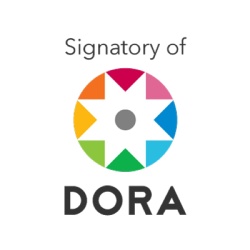The Role of Artificial Intelligence in Developing Scientific Research Skills from the Perspective of Faculty Members: Laghouat University as a Case Study
دور الذكاء الاصطناعي في تطوير مهارات البحث العلمي من وجهة نظر أعضاء هيئة التدريس - جامعة الأغواط نموذجاًّ
الملخص
This study aimed to explore the role of artificial intelligence (AI) in developing scientific research skills among Faculty Members at Laghouat University. The social Survey method was employed, and a questionnaire was used as the primary tool for data collection. The study sampleconsisted of 124 Faculty Members. The study yielded several key findings, most notably: awidespread use of AI Tools in the academicenvironment, with the majority of participants reportingreliance on academic research platforms such as Google Scholar and Semantic Scholar, as well as reference management tools like End Note and Zotero. A significant portion of the samplealsoreported using generative AI Tools—most notably Chatgpt—to support researchthinking and to answer scientific questions. The resultsfurtherindicated the effectiveness of AI technologies such as naturallanguageprocessing and machine Learning in accelerating data collection and analysisprocesses. However, some participants identified technical obstacles, including a lack of training and difficulties in understanding how to applythesetools. Concernswerealsoraised about data privacy and the potential impact of AI on researchoutcomes. The findingsshowed no statisticallysignificantdifferencesbetween male and female participants in their use of these technologies or in their academic achievement, indicating a degree of genderparity in This Domain.
التنزيلات
المراجع
Elkalliny, S., & El Dib, H. (2024). Problems of using artificial intelligence in scientific research: Challenges and innovative applied solutions. World Journal of Artificial Intelligence and Robotics Research, 1(11), 1–11.
Gaber, A., Al-Qahtani, M., Al-Fahhad, S., & Al-Dossary, R. (2023). Faculty members’ awareness of artificial intelligence and its relationship to technology acceptance and digital competencies at King Faisal. International Journal of Learning, Teaching and Educational Research, 22(7), 73–496.
McGrath, C., Hammar Chiriac, E., & Olteanu, A. (2023). University teachers' perceptions of responsibility and artificial intelligence in higher education: An experimental philosophical study. Computers and Education: Artificial Intelligence, 4, Article 100132.
Titko, D., Štarega, M., & Skvarciany, V. (2023). Artificial intelligence for education and research: Pilot study on perception of academic staff. Virtual Economics, 6(3), 7–19.
Elkalliny, Suzan; El Dib, Heba;. (2024). Problems of Using Artificial Intelligence in Scientific Research: Challenges and Innovative Applied Solutions. Wor Jour of Arti inte and Rob Res, 1(11), 01-11.
Gaber, Adel et al;. (2023). Faculty Members’ Awareness of Artificial Intelligence and Its Relationship to Technology Acceptance and Digital Competencies at King Faisal. International Journal of Learning, Teaching and Educational Research, 22(7), 73-496.
Mc Grath, Cormac etal;. (2023). University teachers' perceptions of responsibility and artificial intelligence in higher education - An experimental philosophical study. Computers and Education: Artificial Intelligence, 4, 1-9.
Titko, Delena etal;. (2023). Artificial Intelligence for Education and Research: Pilot Study on Perception of Academic Staff. Artificial Intelligence for Education and Research: Pilot Study on Perception of Academic Staff. Virtual Economics,, 6(3), 7-19.
Arabic references in English:
Al-Kabir, A., & Yassin, H. (2023). The use of artificial intelligence tools in scientific research: An analytical study. Arab International Journal of Information and Data Technology, 3(4), 49–96.
Al-Munjidi, A. (2024). Artificial intelligence technologies and their role in the development of higher education institutions: An analytical study. Journal of the Arabian Peninsula Center for Educational and Human Research, 2(20), 26–50.
Al-Qahtani, A., & Al-Dail, S. (2023). The reality of employing artificial intelligence at Princess Nourah bint Abdulrahman University from the perspective of faculty members and their orientation toward it. Northern Journal of Humanities, 8(1), 509–548.
Eid, B., & Eid, Y. (2024). The role of artificial intelligence in developing the educational process and scientific research in universities: A field study at Mansoura University. Journal of the Faculty of Arts, 29(29), 392–522.
Kotb, J. (2023). Research on artificial intelligence tools and their application fields in academic writing. Journal of Arts, Literature, Humanities and Social Sciences, 98(98), 443–469.
Laareit, W., & Daghman, H. (2024). Artificial intelligence between researchers' ethical responsibility and the technical inevitability of research from the perspective of university faculty in Algeria: A field study. Journal of Athras for Distance Education, 5(3), 799–816.
Lattrash, M. (2023). The reality of faculty members' use of artificial intelligence tools in scientific research: A field study on faculty members at the Higher Institute of Technical Sciences – Kkula Municipality. Al-Qalam Al-Mubeen Journal, 2(15), 73–98.
Lulwa, Q, & Futoon, Q. (2024). The role of chatbots in developing scientific research skills. King Faisal University Scientific Journal – Humanities and Administrative Sciences, 25(2), 1–8.
Zaabatnah, S., & Sebbagh, O. (2023). The use of artificial intelligence tools in scientific research in the field of social and human sciences: Advantages and limitations. Journal of Human Sciences, 34(3), 145–163.

هذا العمل مرخص حسب الرخصة Creative Commons Attribution-NonCommercial 4.0 International License.









